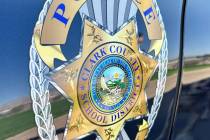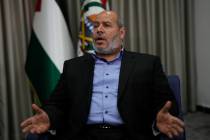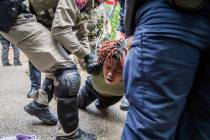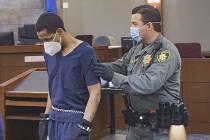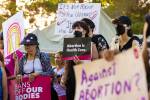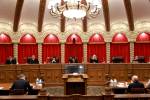Petition ruled too vague for ’10 ballot
CARSON CITY -- An initiative petition that ultimately could prevent abortion is so vague in its true intentions that it cannot be circulated among voters, a judge decided Friday.
"There is no way the average person can understand the effect of this petition," District Judge James T. Russell said after a 75-minute hearing on the Personhood petition. "To me, the issue is 'Are you giving voters adequate information about what they would be voting on?' "
The judge said he did not see how the petition could be made more understandable by just changing some of its language. In past challenges, judges have agreed to allow some petitions to be circulated after minor changes were made.
Russell also said the petition violated a state law that limits ballot questions to one subject.
Immediately after the decision, Personhood Nevada President Olaf Vancura said his organization will appeal the decision to the Nevada Supreme Court. A hearing before the high court probably would not come before mid-February.
"We think he is wrong," Vancura said. "This is about civil rights. If you are dead, you can't have civil rights."
The Personhood drive in Nevada is part of a national movement by PersonhoodUSA, a Christian anti-abortion organization, to find a way to overturn the 1973 Roe v. Wade decision by the U.S. Supreme Court that allows abortion.
Moves are under way in 30 states to change laws or pass constitutional amendments that say all persons, including fetuses, are human beings.
Voters in some states, such as Colorado, already have rejected Personhood ballot measures.
In the Roe v. Wade decision, Justice Harry Blackmun said if "personhood" could be established for a fetus, then the fetus's "right to life would be guaranteed" by the U.S. Constitution.
Vancura said his organization doesn't have time to rewrite and submit a completely new petition to voters since that petition also would be challenged by Planned Parenthood and the American Civil Liberties Union.
"They would try to run the clock out on us," he said, referring to a deadline for getting petitions on the statewide ballot.
To quality its measure for the state ballot, Personhood Nevada must collect 97,002 valid signatures for its petition by Aug. 4. Since it calls for amending the state constitution, voters would have to approve it in both the 2010 and 2012 general elections.
The petition begins by stating "In the great state of Nevada, the term 'person' applies to every human being."
It goes on to say that a "human being" includes all members of the human species from "the beginning of his or her biological development, without discrimination as to age, health, reproduction method, function, physical or mental dependency or cognitive ability."
In arguing against the petition, ACLU lawyer Lee Rowland said it violated the state's single-subject rule and that "voters have to figure out what they are trying to do."
Not only does the petition attempt to outlaw abortion, but it also might block all types of birth control, except for condoms, she said.
"Why isn't what would be banned in the initiative petition?" Rowland asked.
Because the language is so vague, she predicted future judges would be called on to decide what the petition attempted to accomplish.
But Personhood lawyer Mike Brooks contended "any 11- or 12-year-old would have a firm grasp" of the intentions of the petition.
He said the Personhood sponsors want to prevent a future world where abortion is permitted and "mercy killings" could be ordered for the ill, elderly, infirm and children born with deformities.
"This is about far more than abortion," Brooks said.
He noted that in Nazi Germany, not only were Jews killed, but "Aryan" children born with deformities were killed.
But Brooks acknowledged that passage of the petition itself would not end abortion.
"Someone would have to bring a case" to challenge Roe v. Wade, he said. "It will be up to the judiciary to decide if it has that effect."
Brooks maintained that if the petition had been in effect in 1857, it would have prevented the U.S. Supreme Court from making the Dred Scott decision that slaves and descendants of slaves, even those no longer slaves, were not citizens and consequently not protected by the Constitution.
"We are looking at humanity in every form," he said. "We are covering the whole thing, folks."
In his decision, Russell noted that Brooks' own words showed how broadly the petition would apply and, therefore, also violated the single-subject rule.
Contact Capital Bureau Chief Ed Vogel at evogel@reviewjournal.com or 775-687-3901.











